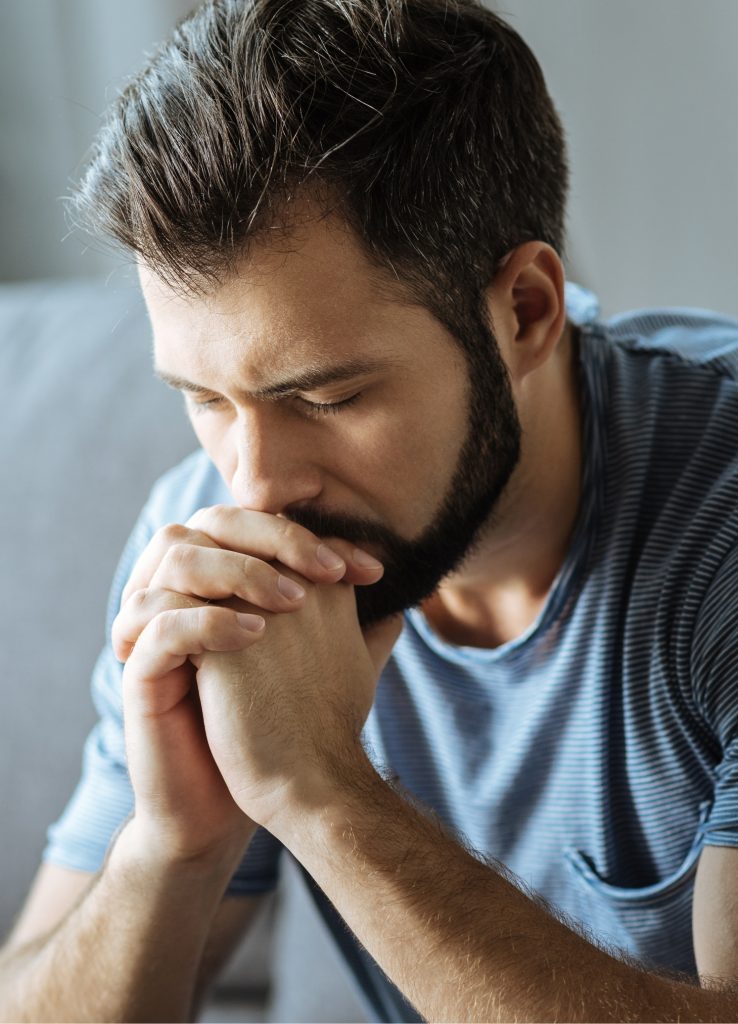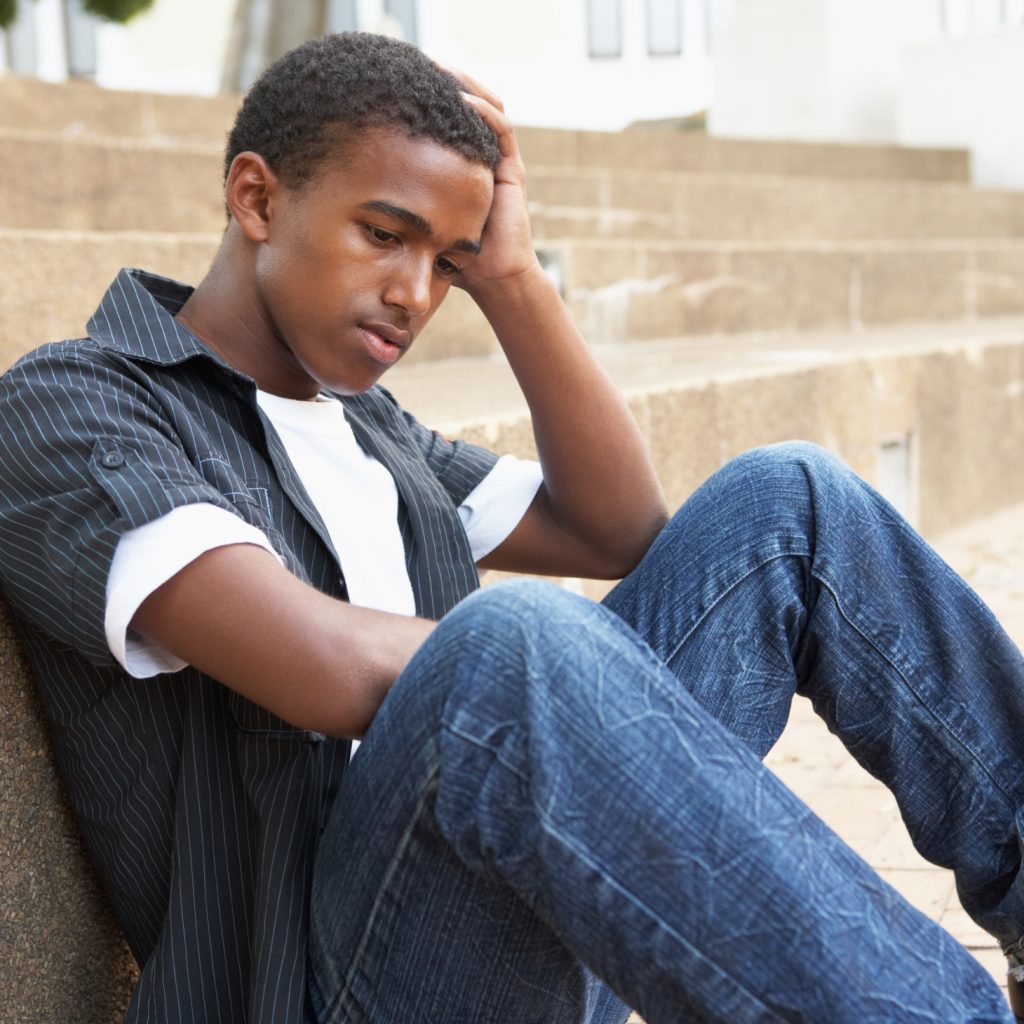Major Depression
Characterized by an all-consuming dark mood and a loss of interest in activities, major depressive disorder (MDD) symptoms include trouble sleeping, loss of appetite, changes in weight, low energy, and a general feeling of despair.
11125 Rockville Pike, Suite 107
Rockville, MD 20852
(703) 552-2722
Monday-Friday: 8 a.m.–8 p.m.
Saturday: 8 a.m.–4 p.m.
44031 Pipeline Plaza, Suite 210
Ashburn, VA 20147
(703) 552-2722
Monday-Friday: 8 a.m.–8 p.m.
Saturday: 8 a.m.–4 p.m.
3331 Duke Street
Alexandria, VA 22314
(703) 552-2722
Monday-Friday: 8 a.m.–8 p.m.
Saturday: 8 a.m.–4 p.m.
1430 K Street NW, Suite 102
Washington, DC 20005
(703) 552-2722
Monday-Friday: 8 a.m.–8 p.m.
Saturday: 8 a.m.–4 p.m.
Depression can significantly impact your daily life, relationships, and overall well-being. Our mental health specialists offer telehealth and in-person appointments if you seek support.
Depressive symptoms can occur in adults for many reasons. Life events, chemical changes in your brain, and genetic predisposition can cause them. There are several types of depression, each with unique characteristics. The 4 most common types include:

Characterized by an all-consuming dark mood and a loss of interest in activities, major depressive disorder (MDD) symptoms include trouble sleeping, loss of appetite, changes in weight, low energy, and a general feeling of despair.

A low mood that lasts for at least 2 years but doesn't match the intensity of major depression indicates a persistent depressive disorder. Many people with this type of depression can function day to day but feel low or joyless much of the time.

Part of bipolar disorder, this condition involves episodes of extremely low moods that meet the criteria for major depression. People diagnosed with bipolar disorder also go through periods of unusually high energy or activity, which can appear to be the opposite of depression symptoms.

This type of depression emerges as days get shorter in the fall and winter. The mood change may result from alterations in the body's natural daily rhythms, the eyes' sensitivity to light, or how chemical messengers like serotonin and melatonin function.

This type of depression affects up to 1 in 7 women who give birth and can have devastating effects on the women, their infants, and their families.

This type of depression is a severe form of premenstrual syndrome or PMS. Symptoms of PMDD usually begin shortly after ovulation and end once menstruation starts.

The range of depression symptoms is extensive, and your experience may be very different from someone else’s. Additionally, the severity of the symptoms can vary from person to person. You may be diagnosed with depression if you exhibit 5 or more of these symptoms:
In addition to these symptoms, depression can also be accompanied by physical aches or pains caused by stressful feelings.
Depression is a complex condition with multiple potential causes. When therapists and patients understand the root causes of depression, they can create an effective treatment plan. A singular cause is sometimes the case, but depression can also result from a mixture of issues. Experiencing depression without knowing why can also lead to anxiety.
Some causes of depression include:
Stressful or sad events can trigger depression. These typically include the death of a loved one, loss of a job, or the end of a relationship. Grieving these events is normal, but feelings that linger for more than a few weeks can be a sign of depression. A mental health professional can give you the tools to work through your feelings.
Brain chemistry imbalances or hormonal changes may be responsible for depression when there is no obvious cause. It’s unclear to researchers why these imbalances occur, but certain medications can effectively treat the condition.
Low self-esteem, negative thought patterns, and certain personality traits may increase vulnerability to depression.
Certain untreated illnesses, such as thyroid or autoimmune diseases, can increase the risk of developing depression.
Depression is treatable, and many effective options are available. Psychological treatment can help relieve depression symptoms and lower the risk of becoming depressed again by helping you more effectively deal with negative thoughts or challenges.
Psychotherapy: Various forms of talk therapy, such as cognitive behavioral therapy (CBT) and interpersonal therapy, can help individuals manage depression.
CBT is a goal-oriented, evidence-based approach that helps individuals identify and change negative thought patterns and behaviors. It’s commonly used to treat anxiety, depression, and other mental health conditions effectively.
Interpersonal therapy (IPT) is a structured type of psychotherapy that focuses on improving interpersonal relationships and communication patterns. It can help you address issues such as grief, role transitions, conflict, and social isolation that may contribute to depression or other mood disorders.
Antidepressant Medication: Antidepressants can help balance brain chemistry and allow you to feel like yourself again. Working closely with a therapist and a physician to find the right medication and dosage is essential. Our licensed therapists and board-certified psychiatrists will take time to understand your symptoms, history, and lifestyle to recommend the most appropriate treatment. Often, combining psychotherapy and medication is the most effective treatment for depression.
Lifestyle changes: In addition to other therapies, regular exercise, a balanced diet, good sleep hygiene, and stress management techniques can help alleviate depression symptoms.

Depression is an illness, not a sign of weakness, that can be effectively treated, especially with a combination of mental health therapy and psychiatric medication management with board-certified licensed therapists and psychiatrists. Our therapists and psychiatrists will tailor a therapy and/or medication plan to each individual’s needs. Don’t let depression control your life—reach out to us today to take the first step toward better mental health.
Book Online